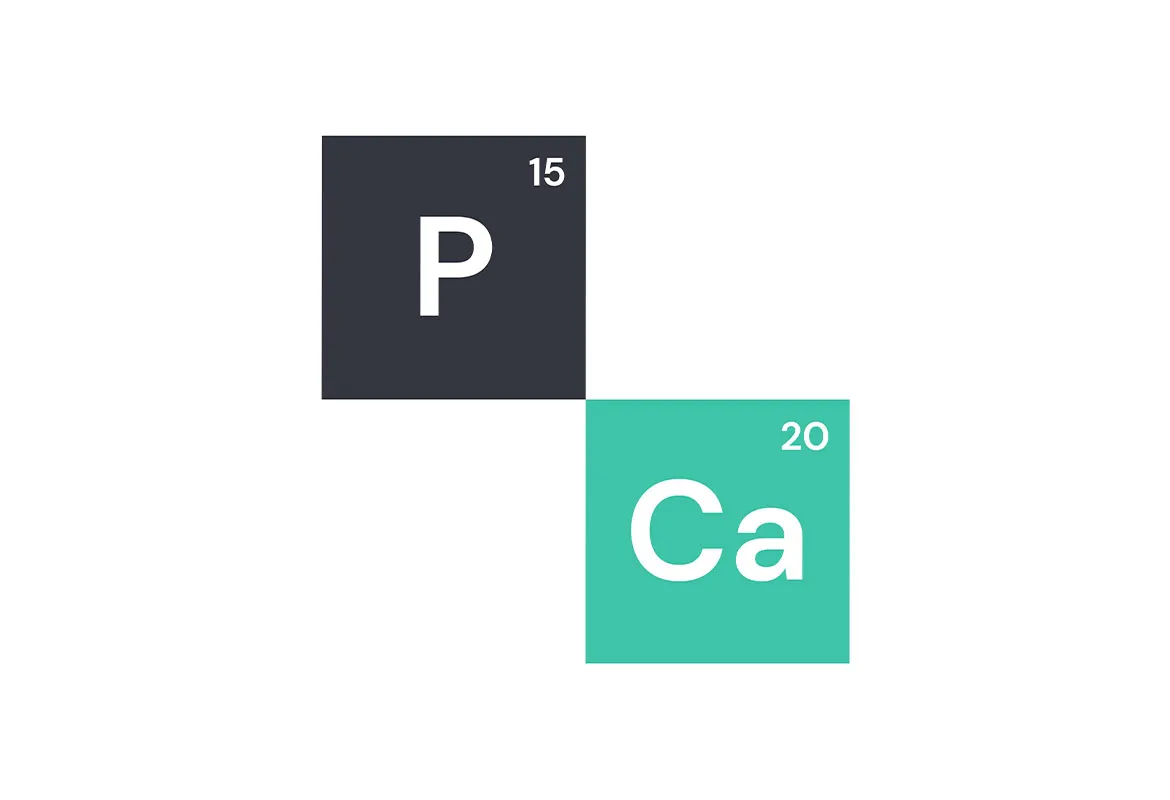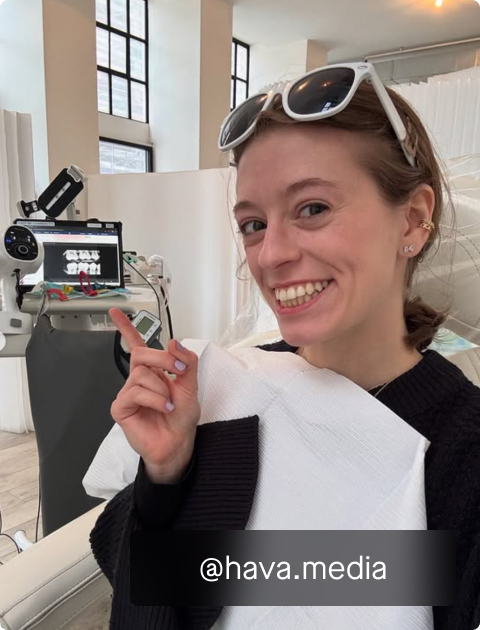In remineralization we trust

Why do dental professionals make such a big deal about mineralization?
After you eat, small food particles get stuck and hang around in your mouth. Your saliva breaks down those particles into carbohydrates and sugars. Then bacteria find those yummy morsels and break them down even further, into acids. These acids are, well, acidic, and as they sit on your teeth, they dissolve the minerals (calcium and phosphorus) on the tooth enamel.
Day after day, the acids eat away at your enamel, causing your teeth to become weaker. That's why it's important to help repair the enamel by replenishing the minerals lost to the acids. Remineralization is the process of your enamel absorbing minerals and replenishing the lost calcium and phosphorus. This strengthens your teeth and stops the tooth decaying process.
What happens if I don't remineralize my teeth?
Let's say you decide to stop brushing your teeth. The acids created by bacteria will remain on your teeth and dissolve the calcium and phosphorus that make your teeth hard. Let this go on for long enough and you'll end up with tooth decay.
Tooth decay shows up as cavities and tooth sensitivity. These things aren't just uncomfortable, they turn into unnecessary (and expensive) trips to the dentist. So maybe you saved time by not brushing your teeth, but you just lost hours and possibly hundos by having to go into the dentist for a preventable trip.
That's why your dentist and hygienist are constantly encouraging you to take care of those teeth. The best way to combat tooth decay is to prevent it in the first place!
Ok, I'm sold. So how do I remineralize my teeth?
Fortunately, there are plenty of toothpastes that you can use every day (ideally more than once / day - read our piece on dental hygiene for more) to help remineralize your teeth. The downside of so many choices is, how do you know what to pick?
We asked our dentists and hygienists about this and they said no matter the brand or flavor, make sure your toothpaste has one of these ingredients:
- Fluoride
- Recaldent
- Hydroxyapatite
All three of these ingredients remineralize your teeth and help keep that enamel strong. So long as your toothpaste has one of these, you'll be doing your teeth a huge favor. Here's more information about each of those ingredients.
What is fluoride? And is it safe?
It's a common misconception that fluoride is a synthetic chemical. Fluoride is actually a naturally-occurring mineral that is found in many water sources. It's awesome at remineralizing teeth and fighting cavities.
Fluoride is a compound of fluorine ("F" on the periodic table). We aren't chemists so we can't give you the details, other than telling you fluoride is a natural ingredient. The two most common types you'll find in toothpaste are sodium fluoride and stannous fluoride.
Fluoride is safe and effective when used properly and in appropriate doses. The Centers for Disease Control and Prevention confirms fluoride is both safe and beneficial. There isn't scientific evidence linking fluoride to negative health effects when it's used appropriately.
All that said, there are also two other alternatives to fluoride that also remineralize your teeth. Recaldent and hydroxyapatite.
Recaldent? Sounds like a tooth recall…
…but it's not. Recaldent is a milk-derived protein that releases calcium and phosphate, which enamel can then absorb. It's often recommended for people with dry mouths since it does not irritate dry mouths like some other toothpastes.
However, if you have a lactose allergy talk to a professional before you use Recaldent. Because it is milk-derived, it may cause an allergic reaction if you have issues with other dairy products.
Hydro-what? Hydroxyapatite?
Hydroxyapatite is a naturally occurring form of the mineral calcium apatite, also known as calcium phosphate. Oh hey, that's the same stuff your enamel is made out of! So it's no surprise that hydroxyapatite helps to replenish the calcium and phosphorus lost to acids on your teeth. It can also reduce plaque, minimize bleeding gums, and reduce the bacteria found in your mouth.
Never heard of it before? You're not alone. Maybe that's because once upon a time it was a secret! NASA started sending this up to space to help out astronauts. Hanging out in a no-gravity environment caused astronauts to lose minerals in their teeth and bones, so NASA introduced hydroxyapatite to repair those lost minerals.
How do I pick the right remineralization strategy for my teeth?
Next time you're in the toothpaste aisle, be ready for some serious decision fatigue. There will be dozens of brands, ingredients, and claims to sift through. Yet there's no good way to help you hone in on the best toothpaste for your mouth. Understanding the composition of your mouth (using science) and picking the right oral care products will help you not only fight, but prevent things like tooth decay.









